第20章 Over the Arayama Pass(2)
A pair of teahouses, rivals, crowned the summit of the pass, which, like most Japanese passes, was a mere knife-edge of earth. With a quickened pulse if a slackened gait, I topped the crest, walked --straight past the twin teahouses and their importunities to stop--another half-dozen paces to the brink, and in one sweep looked down over a thousand feet on the western side. Noto, eyelashed by the branches of a tree just breaking into leaf, lay open to me below.
After the first glow of attainment, this initial view was, I will confess, disillusioning. Instead of what unfettered fancy had led me to expect, I saw only a lot of terraced rice-fields backed by ranges of low hills; for all the world a parquet in green and brown tiles.
And yet, as the wish to excuse prompted me to think, was this not, after all, as it should be? For I was looking but at the entrance to the land, its outer hallway, as it were; Nanao, its capital, its inland sea, all its beyond was still shut from me by the nearer hills. And feeling thus at liberty to be amused, I forthwith saw it as a satire on panoramas generally.
Panoramic views are painfully plain. They must needs be mappy at best, for your own elevation flattens all below it to one topographic level. Field and woodland, town or lake, show by their colors only as if they stood in print; and you might as well lay any good atlas on the floor and survey it from the lofty height of a footstool.
Such being the inevitable, it was refreshing to see the thing in caricature. No pains, evidently, had been spared by the inhabitants to make their map realistic. There the geometric lines all stood in ludicrous insistence; any child could have drawn the thing as mechanically.
The two teahouses were well patronized by wayfarers of both sexes, resting after their climb. Some simply sipped tea, chatting; others made a regular meal of the opportunity. The greater number sat, as we did, on the sill, for the trouble of taking off their straw sandals.
Our landlady was the model of what a landlady should be, for it was apparently a feminine establishment. If there was a man attached to it, he kept himself discreetly in the background. She was a kind, sympathetic soul, with a word for every one, and a deliberateness of action as effective as it was efficient. And in the midst of it all, she kept up a refrain of welcomes and good-bys, as newcomers appeared or old comers left. The unavoidable preliminary exercise and the crisp air whetted all our appetites. So I doubt not she drove a thriving trade, although to Western ideas of value her charges were infinitesimally small.
Midday halts for lunch are godsends to tramps who travel with porters.
They compel the porters to catch up, and give the hirer opportunity to say things which at least relieve him, if they do no good. I had begun to fear ours would deprive me of this pleasure, and indeed had got so far on in my meal as to care little whether they did, when automatically they appeared. Fortunately they needed but a short rest, and as the descent on the Noto side was much steeper than on the other, half an hour's walk brought us to the level of kuruma once more.
A bit of lane almost English in look, bowered in trees and winding delightfully like some human stream, led us to a teahouse. While we were ordering chaises a lot of children gathered to inspect us, thus kindly giving us our first view of the natives. They looked more open-eyed than Japanese generally, but such effect may have been due to wonder. At all events, the stare, if it was a stare, seemed like a silent sort of welcome.
Leaving the children still gazing after us we bowled away toward Nanao, and in the course of time caught our first glimpse of it from the upper end of a sweep of meadows. It sat by the water's edge at the head of a landlocked bay, the nearer arm of the inland sea; and an apology for shipping rode in the offing. It seemed a very fair-sized town, and altogether a more lively place than I had thought to find. Clearly its life was as engrossing to it as if no wall of hills notching the sky shut out the world beyond. Having heard, however, that a watering-place called Wakura was the sight of the province, and learning now that it was but six miles further, we decided, as it was yet early in the afternoon, to push on, and take the capital later. We did take it later, very much later the next night, than was pleasing.
Wakura, indeed, was the one thing in Noto, except the charcoal, which had an ultra-Noto-rious reputation. Rumors of it had reached us as far away as Shinshiu, and with every fresh inquiry we made as we advanced the rumors had gathered strength. Our informants spoke of it with the vague respect accorded hearsay honor. Clearly, it was no place to pass by.